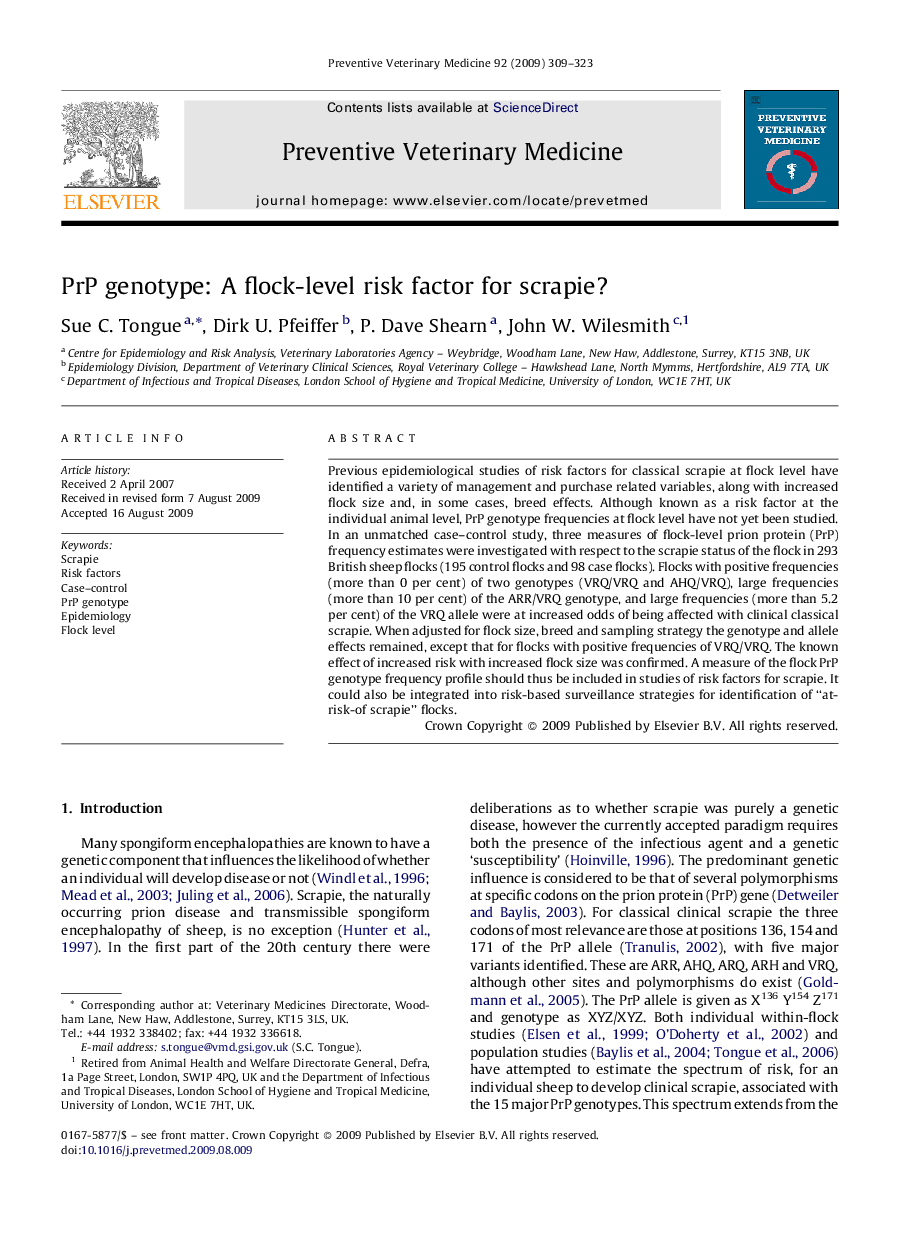| Article ID | Journal | Published Year | Pages | File Type |
|---|---|---|---|---|
| 2453142 | Preventive Veterinary Medicine | 2009 | 15 Pages |
Previous epidemiological studies of risk factors for classical scrapie at flock level have identified a variety of management and purchase related variables, along with increased flock size and, in some cases, breed effects. Although known as a risk factor at the individual animal level, PrP genotype frequencies at flock level have not yet been studied. In an unmatched case–control study, three measures of flock-level prion protein (PrP) frequency estimates were investigated with respect to the scrapie status of the flock in 293 British sheep flocks (195 control flocks and 98 case flocks). Flocks with positive frequencies (more than 0 per cent) of two genotypes (VRQ/VRQ and AHQ/VRQ), large frequencies (more than 10 per cent) of the ARR/VRQ genotype, and large frequencies (more than 5.2 per cent) of the VRQ allele were at increased odds of being affected with clinical classical scrapie. When adjusted for flock size, breed and sampling strategy the genotype and allele effects remained, except that for flocks with positive frequencies of VRQ/VRQ. The known effect of increased risk with increased flock size was confirmed. A measure of the flock PrP genotype frequency profile should thus be included in studies of risk factors for scrapie. It could also be integrated into risk-based surveillance strategies for identification of “at-risk-of scrapie” flocks.
